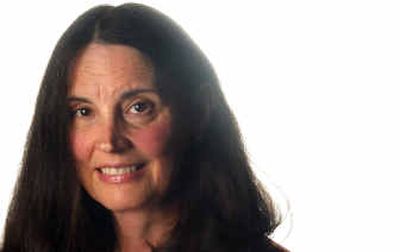Angela Smith: Building new routines, being organized proves key

Angela Smith wakes at 3 a.m. these days, worrying over how she’ll pay the heat bill now that she’s divorced, and fretting over the weekend hours she spends away from her three children.
Forty-two-year-old Smith, who lives in Cheney, recently took a promotion at Northern Quest Casino. As a floor supervisor, each night she oversees four tables of card dealers or the dice pit. But she worries that she doesn’t see her children as often as she’d like, and even with a raise, her money never seems to stretch far enough.
Today she’s huddled in a red upholstered chair in the South Hill living room of life coach Cynthia Hallanger, her hazel eyes pinched with worry.
“I live paycheck to paycheck,” she confesses.
Hallanger asks her to rate the various areas of her life on a 0 to 10 basis, with 10 representing the most satisfaction. Her career’s a 7 — “I love my job” — but money’s a 2. Her family ranks a 7 or an 8, but she misses them. Most of her family lives on the Yakama Indian Reservation near Yakima. “I don’t have anybody out here,” she says. “My family is so far away.”
She talks about what she loves: dancing, reggae music, powwows.
When it’s time to clean house, she pops in a Carlos Santana CD, and moves to the music. “When it’s done, I say, ‘OK, that’s enough. My house should be clean enough.’ “
Hallanger explains the coaching process, then urges Smith to commit to some homework for the coming week. Hallanger wants her to list the pros and cons of her current work schedule, to develop some positive affirmations she can repeat to herself, and to set aside 30 minutes for herself four times a week.
Smith mentions she knows she needs to organize her bills, so Hallanger asks her to spend an hour on that task.
“Oh, I hate doing that,” Smith sighs.
“You know what? You can do it while listening to Santana,” Hallanger negotiates.
Smith checks in with Hallanger as the weeks roll past. Soon they meet again. Smith slept deeply the night before. She has added a new affirmation to her routine, “I deserve to be happy.” She repeats it several times a day, upon waking, brushing her teeth and driving to work.
When life turns stressful, Smith tells herself, “Oh, no, I deserve to be happy here.”
She organizes the bills. She digs out the garage-sale leftovers in her spare bedroom, loading up bags to take to Goodwill. She notices that when she doesn’t take the kids to the store, she spends less money.
She resolves to spend one-on-one time with each child and adds a treat for herself: a trip to a matinee on her day off.
The days zip past. Quickly, five weeks have gone by, and Smith meets with Hallanger for a wrap-up session, back in Hallanger’s living room.
This time, Smith relaxes into the big red upholstered chair. Her brown hair tumbles to her shoulders. A shaft of sunlight beams through the front window, and a smile breaks across Smith’s face.
Now she regularly sleeps through the night. She’s budgeted her expenses and talked with her kids about the limits. This week she even filed her taxes.
Though she’s still working weekends, she asks for time off when her kids have a birthday or track meet. She’s also figured out ways to spend special time with each of them during the week. She’s popped in for lunch at 8-year-old Calvin’s school and rejoiced over 14-year-old Sophie’s admission to the National Junior Honor Society.
“You’re a great mom,” Hallanger reminds her.
Just recently, Smith spent a day alone with 12-year-old Carolyn, her middle daughter. They rented movies, and when they shopped, Carolyn said, “No, I don’t really need this, Mom.”
Smith tells her coach she feels proud herself for asking for help.
“I learned I am strong, and I am doing my best for my kids,” she says. “I don’t beat myself up as much as I used to. I’m aware of when I’m doing it now.”
She’s also started new routines: organizing bills and laundry, picking up rooms, repeating affirmations.
“By creating better habits and sticking with them, you’ve made your life easier,” Hallanger says. “You’ve done it yourself. Congratulations.”
As their time together draws to an end, Hallanger walks Smith to the front door and envelopes her in a hug. Then Smith heads back to her busy life, smiling and affirmed: She deserves to be happy.